人教版新目标英语九年级Unit 14知识点梳理
作者:未知 时间:2021-09-15 阅读:( )
考点解析
Section A
1. help的用法
(1)help sb do sth.意为“帮助某人做某事”
I can help you learn English.
(2)help sb to do sth.意为“帮助某人做某事”
I can help you to learn English.
(3)help sb with sth.意为“帮助某人做某事”
I can help you with (learning) English.
Our teacher always helps us ____ our English.
A. for B. into C. to D. with
2. with the help of sb=with one’s help意为“在某人的帮助下”
with the help of him
=with his help.在他的帮助下
With the help of policemen,we found our lost child.
Linda is not good at Chinese,but she passed the exams____the help of her classmates.
A.with B.under C.without
3. 在招待客人时,我们可以说:help oneself to sth意为“随便吃……”。
Tom, help yourself to some bread,please.
Children,help yourselves to some bread,please.
4. can’t/couldn’t help doing sth意为“情不自禁地做某事,忍不住做某事”
She couldn’t help crying when she heard the news.
5. try one’s best to do sth意为“尽某人的最大努力去做某事”.
We must try our best to finish the work in two days.
6. be strict with sb“对某人要求严格”
be strict in sth“对某事要求严格”
The teacher should be strict with the students and the students should be strict in their study.
Mr Wang is quite strict ___ his son and ___ his work.
A. with;with B. with;in
C. in;in D. in;with
7. (1)learn to do sth意为“学习做某事”
My younger brother is learning English.
(2)learn from意为“向……学习”
We must learn from Lei Feng.
(3)learn by oneself意为“自学”
He learns French by himself.
(4)learn about意为“了解,知道”
The more you learn about the Chinese history,the more you enjoy living in China.
8. 乐器前必须加定冠词the,球类运动前不加任何冠词。
play the piano 弹钢琴
play soccer踢足球
Dave doesn’t like playing_____volleyball,but he likes playing____piano.
A.the;the B./;the
C.the;/ D./;/
9. advise doing sth“建议做某事”
advise sb to do sth“建议某人做某事”
Mrs Brown advises us to eat healthy food.
I advise waiting till the right time.
10.break用作名词时,意为“休息;休息时间”。take a break意为“休息一会儿”
She’s worked for 27 hours without a break.
We’ve been busy for hours.We’d better take a break.
11.表示“吃药”时,常用take the medicine,一般不用eat或 drink。
I took some medicine for my headache just now.
12.instruction意为“指示,说明”时常用复数形式instructions.
He gave really clear instructions during PE class.
The instructions on the medicine box are very confusing.
You’d better read the_______first before you use the camera.
A.websites B.expressions
C.instructions D.advertisements
13.be patient with sb对某人有耐心
be patient of sth忍耐某事
You should learn to be patient.
I am patient with my sister.
14.work out意为“解决;算出”;另外,work out还有“结果为”之意,work out fine/well意为“奏效”。
This problem is so hard that I can’t work it out.
Everything is working out well.
15. no matter what=whatever意为“无论什么”
no matther where
=wherever
无论在哪
no matter when
=whatwhen
无论什么时候
No matter what you say,I won’t believe you.
___I am in trouble,my best friend Li Lei always helps me.
A.Whenever B.Whatever
C.However D.Never
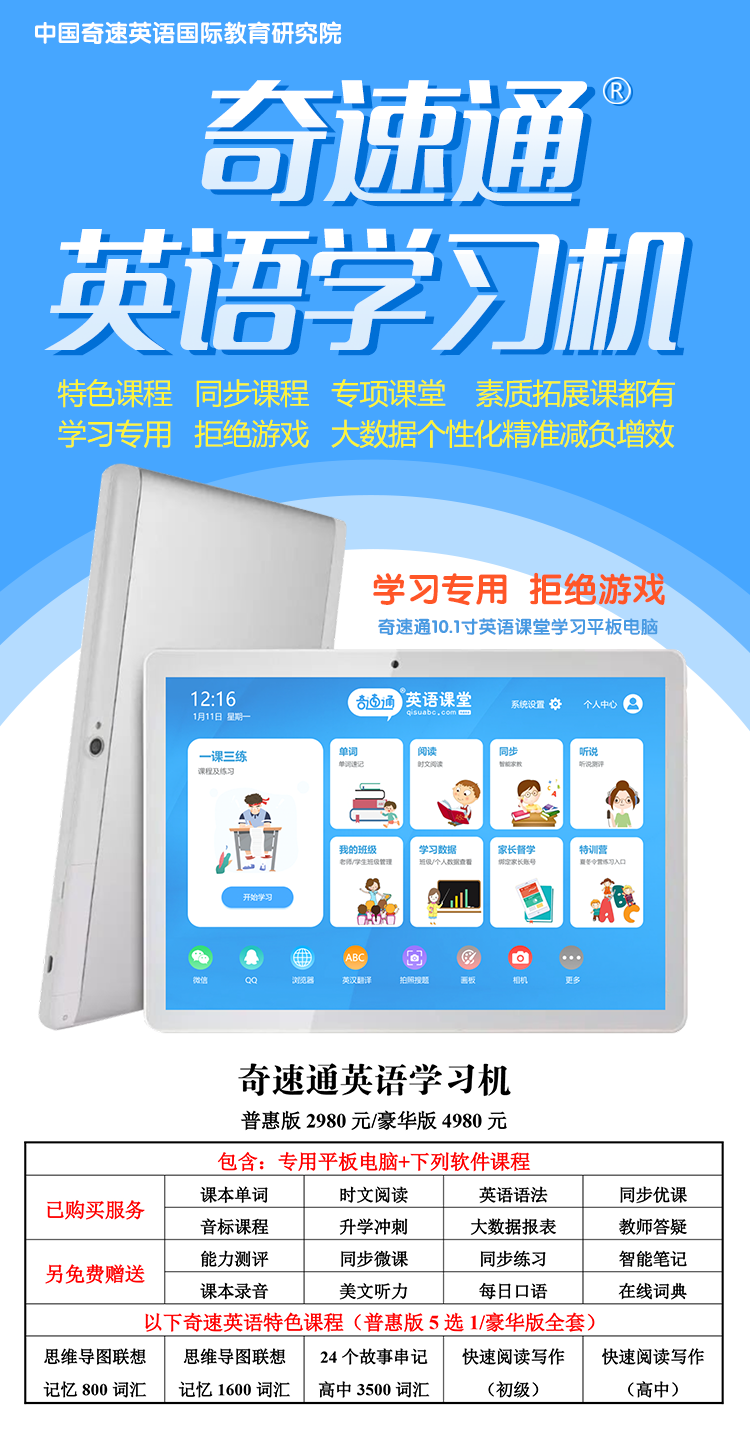
16.guide sb to do sth “指导某人做某事” guide sb to +某地“指引某人去某地”
He can guide you to find the way.
I guided him to his seat.
17.encourage sb to do sth“鼓励某人做某事”
encourage sb in sth“在……方面鼓励某人/助长某人的某种行为”
Parents should encourage children to do things by themselves.
Don’t encourage him in laziness.
Jessica’s parents always encourage her_____out her opinions.’
A.speak B.speaking
C.to speak D.will speak.
18.prepare for意为“为……作准备”;
I can’t go to the movies with you because I have to prepare for an exam.
prepare to do sth“准备做某事”
Taking out a piece of paper,he prepared to write to his parents.
19.have fun
=have a good time
=enjoy oneself意为“做某事很开心”后面都接动词-ing形式。
We had a good time in the park yesterday afternoon.(同义句转换)
Wein the park yesterday afternoon.
20.wish to do sth “希望做某事”
We wish to live in a big house with a big garden.
wish sb to do sth “希望某人做某事”
We wish our teacher to join us.
—What are you going to do when you grow up?
—I singer,but my parents wish me____a teacher.
A.am B.to be
C.will be D.be
21.hope to do 意为“希望做某事”不可用于hope sb to do sth.结构
I hope to go to Beijing.
22.It’s time for sth意为“该是(做)……的时候了”
Boys and girls,it’s time for class.
It’s time (for sb )to do sth意为“该是(某人)做某事的时候了”
It’s time to go to school.
It’s time for you to clean the classroom.
23.graduate from意为“从……毕业”
Tom graduated from the university last year.
24.lovely 意为“可爱的;美丽的;美好的”
You look lovely with your short hair.
lively意为“生动的,活泼的,有生机的”
Mr Brown always makes his class lively.
(1)Mr Brown always makes his class ___ and keeps his students ___ in class.
A.alive;interesting B.lively;interesting
C.alive;interested D.lively;interested
(2) Those toys for children look____and sell____.
A.good;lovely B.lovely;good
C.well;lovely D.lovely;well
25.情态动词have to和must的区别
①have to意为“必须,不得不”表示客观的需求,有人称、数和时态的变化。能用于过去时或将来时。don’t have to意为“不必”
②must意为“必须”表示说话人主观上的看法,只有一种形式。不能用于过去时和将来时。mustn’t表示禁止,意为“绝对不能”
I must do my homework now.
我现在必须做作业了。(主动)
I have to do my homework now.
我现在不得不做作业了。(被动)
(1)You ___ wear sports shoes when you climb a mountain.
A.can’t B. shouldn’t
C. mustn’t D.have to
(2)—Dad,must we wait until the light becomes green?
—Yes,I’m afraid we ____ .That’s the traffic rule.
A.can B.may
C.have to D.need
26. need的用法
(1)need做实义动词时后跟动词不定式和动名词两种形式,后跟不定式和动名词的区别
当主语是人时,后跟动词不定式,即need to do sth意为“需要做某事”,用于肯定句
I am tired,I need to have a good rest.
当主语是物时,后接动名词,即need doing.“需要被做”
My hair is long,it need cutting.
(2) need做情态动词时,后跟动词原形,一般用于否定句和疑问句中.
在回答need引导的疑问句时,其肯定回答用must;在回答 must引导的疑问句中,其否定回答用 needn’t如
—Need I go to the party tomorrow evening?
—Yes,you must/No,you needn’t/you don’t have to
—Must I go home now?
—Yes,you must/No,you needn’t/No,you don’t have to
(1)—Must I be in hospital for a week,Doctor?
—No,you ___ .You can go back home tomorrow.
A.mustn’t B. needn’t C. must
(2)You need _________(add) some red sugar to the soup.
(3)The bike is broken,it need ___ .(repair)
27.have problems with sth意为“在某方面有困难”
I have problems with my English sometimes
have problems in doing sth意为“做某事有困难”
We had some problems getting to the top of the mountain.
—I have great_____in finishing the work by myself.Could you help me?
—No problem
A.fun B.success
C.advice D.difficulty
28.go by意为“(时间)过去;消逝”
Two years went by.Time goes by quickly on vacation.
29.记住几表示“最后”的短语
(1)in the end
= at last
= finally(in the end后面没词)
In the end they reached a place of safety.
(2)at the end of …意为“在…的最后”(at the end of 后面必须有词)
at the end of the road
在路的尽头
at the end of the class
在这节课的末尾
(3)by the end of…意为“到……结束时”,常用于过去完成时。
By the end of last year,I had written two books.
At the end of the street you’ll find it.
_____ the end, they found a supermarket______ the end of the road
A.At; in B.In; at
C.In; by D.By; at
小学初中段:
1.词汇演讲口才拓展训练营(线上课程/线下冬令营)
2.中级英语阅读素养训练营(线上课程/线下冬令营)
3.英语时文分级阅读(软件+月刊)
高中段:
1.高中一本小说24个故事速记3500词汇(线上课程/线下冬令营)
2.高中快速阅读写作营(线上课程/线下冬令营)
3.英语时文分级阅读(软件+月刊)
咨询老师17760376675(微信同号)
注:图文整理源于网络,如有侵权请联系我们删除!
-

蔡章兵:深度解读新人教版英语八年级变化与应对策略(附单词表+音频朗读)
(209)人喜欢 2025-07-02 -

蔡章兵:深度解读新人教版英语八年级变化与应对策略(附单词表+音频朗读)
(288)人喜欢 2025-07-02 -
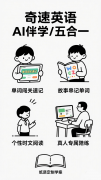
新疆乌鲁木齐市轻资产创业优选:奇速英语 AI + 真人教练伴学,如何用 “效果” 撬动教
(126)人喜欢 2025-06-17 -
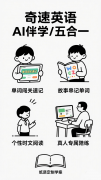
青海省西宁市轻资产创业优选:奇速英语 AI + 真人教练伴学,如何用 “效果” 撬动教育
(151)人喜欢 2025-06-17 -
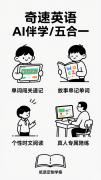
甘肃省兰州市轻资产创业优选:奇速英语 AI + 真人教练伴学,如何用 “效果” 撬动教育
(321)人喜欢 2025-06-17 -
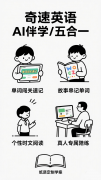
陕西省西安市轻资产创业优选:奇速英语 AI + 真人教练伴学,如何用 “效果” 撬动教育
(85)人喜欢 2025-06-17 -
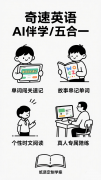
湖北省武汉市轻资产创业优选:奇速英语 AI + 真人教练伴学,如何用 “效果” 撬动教育
(164)人喜欢 2025-06-17 -
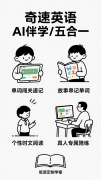
湖南省长沙市轻资产创业优选:奇速英语 AI + 真人教练伴学,如何用 “效果” 撬动教育
(103)人喜欢 2025-06-17 -
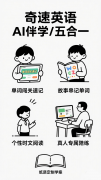
内蒙古呼和浩特市轻资产创业优选:奇速英语 AI + 真人教练伴学,如何用 “效果” 撬动
(142)人喜欢 2025-06-17 -
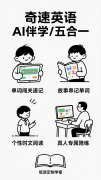
贵州省贵阳市/遵义市轻资产创业优选:奇速英语 AI + 真人教练伴学,如何用 “效果”
(188)人喜欢 2025-06-17

成都/杭州/广州奇速英语冬令营,拒绝机械背词!7

奇速故事闯关背单词,终结机械抄写!单词 “长在

寒假超好玩!哈尔滨、济南、温州奇速英语冬令营

别再等开学逆袭!合肥、福州、厦门奇速英语冬令

不止提分!宁波、昆明奇速英语冬令营,给孩子受

这个寒假超“燃”!东莞、青岛、沈阳奇速英语冬

抓住寒假黄金期!南京、长沙、郑州奇速英语冬令

打破英语学习魔咒!武汉、西安、苏州奇速英语冬

寒假不虚度!成都、重庆、杭州奇速英语冬令营,

扫清英语提分障碍!成都贵阳昆明奇速英语冬令营

扫清英语提分障碍!奇速英语冬令营,寒假冲刺正

这个寒假,让英语逆袭!北京、上海、广州、深圳

奇速英语思维导图故事记单词!这个寒假,让孩子

突破英语成绩瓶颈!广州南宁海口重庆奇速英语冬

奇速故事闯关背单词!这个寒假,英语提分就靠奇

突破英语成绩瓶颈!奇速英语冬令营,寒假逆袭不

拒绝寒假躺平!奇速英语冬令营,让孩子的英语能

攻克英语学习难关!南京杭州合肥福州奇速英语冬

攻克英语学习难关!奇速英语冬令营,寒假蓄力正

告别英语提分困境!沈阳长春哈尔滨上海奇速英语
